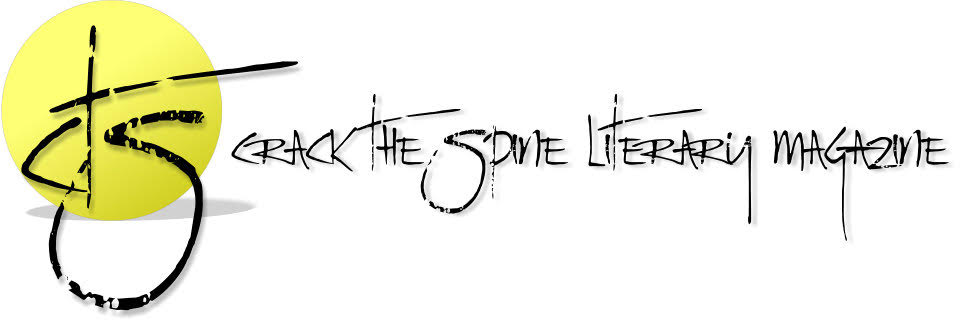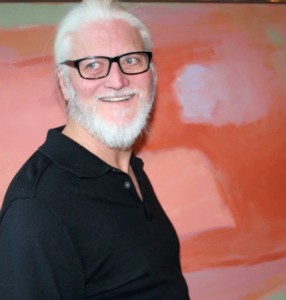Age: The shock atop my head and beard have gone greyhound; the blue eyes, as well as what’s behind them, remain relentlessly ee cummings bohemian.
Location: No matter where I find myself on a map, a big part of me is always in artful, eclectic Marfa, Texas, this seemingly magical experiment in community.
Education: Read, read, read, write, write, write, all the while, as Whitman suggested, filtering everything you ever learned in school, or church, or at home through your own soul. There was a time, however, I earned degrees in Political Science and Business from Southern Methodist University.
The Writer
Do you have a particular writing style?
I’m drawn to the lyrical, stream of consciousness that plumbs the depths of what it means to be here. Not too concerned with show versus tell, just that every word on the page holds the heart of the story in it.
Do you see writing as a career?
Perhaps Wendell Berry put it best in his poem “To Hayden Carruth”: “…What shall / I say? I greet you at the beginning of a great career? / No. I greet you at the beginning, for we are / either beginning or we are dead. And let us have / no careers, lest one day we be found dead in them. / I greet you at the beginning that you have made / authentically in your art, again and again.”
Do you write full-time?
How can I not be, really? I am an artist 24/7, a human too, the pen and page are my paints, canvas and air.
What do you consider to be your greatest accomplishment as a writer?
Writing real, extremely real, well beyond easily manipulated fact. In poetry and fiction we get to indulge the fathoms of truths, don’t you think?
The Work
Tell us about your work in Crack the Spine.
My poem “Waiting”, which recently appeared in Crack the Spine Issue 141, is a 500 word, single sentence rant about writers as well as all others who pursue singular, dare I say, romantic love and restorative social justice regardless of whether these things ever come to pass, or to what extent.
What inspired “Waiting?”
Huge figures in literature I read and identify with, as well as the stories I find myself putting down on paper; then there’s Lisa my wife, a black girl, a Russian muse, peacemaking work in West Bank Palestinian territory, civil disobedience over the Keystone XL pipeline, not to leave out the Flood Wall Street action for bringing economic systems change to dramatically lessen manmade climate change. In a way, most everything else in my life.
How long did it take you to complete this piece?
Stream of consciousness rants are hot. I always write them fast, and then clean them up a little. “Waiting” was done in one afternoon.
Tell us about another project you have published or are currently working on.
Right now I have out to literary agents my third novel, Letters To Alice. Set in the literary enclaves of Manhattan—with a parallel story line developed in Moscow and the famous author Boris Pasternak’s dacha at Peredelkino—this lyrically written story explores muses, love, and creative expression against the backdrop of Russian literary history during the Stalinist purges, and modern-day oppression in the U.S. and abroad.
What inspired this work?
I once met a muse named Alice in the Vancouver, BC airport. Besides, my mom’s favorite story of all was Boris Pasternak’s Doctor Zhivago, his life of love and muses in revolutionary Russia.
The Methods
How often do you write?
I’m sort of always writing, even without putting things down on paper, every experience feeds the muse as well as the material. Mostly, I write earnestly five to six days a week for four to eight hours a day. Right after finishing a novel, I’ll take a few weeks off, but not really.
How many drafts do you generally go through before you consider a piece to be complete?
For poetry, usually there’s a handwritten draft, sometimes taken from snippets I’ve already put down, and then I write it out using my laptop. Five or six polishes later I’ll know when it’s done, a feel sort of thing. For my novels, I polish each chapter several times, until they sing just right. When the manuscript is complete, I’ll go over it two or three times to tune the entire story.
What are your thoughts on writing at a computer vs. writing longhand?
I love to write things out using a nib fountain pen. I’ll get a poem started this way, or make notes for chapters in a novel, then I’ll go to the computer, as it helps me cut and paste and flow more freely. Careful, though, the quickness of the computer can get you a bit wordy, so don’t be afraid to cut.
What is your usual starting point for a piece?
I set out to create richly complex people, as opposed to characters (Hemingway cautioned characters can easily become caricatures), and I always start with people over plot.
What is your best piece of advice on how to stay sane as a writer?
Remind yourself constantly that you’re practicing divine madness, much better than mere sanity.
The Madness
What is your favorite book?
Recently, Ali Smith’s How To Be Both; Americana, John Steinbeck’s The Grapes of Wrath; if there could only be one, quite possibly, Herman Melville’s Moby Dick.
Who is your favorite author?
John Steinbeck, although, I’m really leaning in on Thomas Pynchon.
If you could have dinner with one fictional character, who would it be and why?
Perhaps, Holden Caulfield, to find out in his own words why he returned to Phoebe.
What is the greatest occupational hazard for a writer?
Giving even one whit or damn about getting published, and yet, it is such a nice occurrence.
What makes you laugh?
A Woody Allen movie.
Beach or Mountains?
High desert.
The Beatles or The Rolling Stones?
Blackbird singing . . .
Shakespeare or Tennessee Williams?
Another southern son.
Additional Reading on King
Marfa Writers’ Group: king@kinggrossman.com


It’s me, King, thanks so much for CtS’s inspiring and thought provoking questions in this interview! A thorough pleasure to do this!
Mr. Grossman,
Reading about a writer’s habits always inspires. I have the gait I learned from my father, and my own writing habits are imitations of writers I admire.
I’m always curious about the mood writers strive for as they work. Henry Miller tried to work “calmly, joyously, recklessly.” I wonder if you might comment on the mood in which you write best.
Regards,
Tom
I want to feel close to the work (so writing regularly is important), loose and free in my mind, alive to the characters emotions and inner lives, which means also being alive to my own. It needs to happen organically, feeling a rhythm to it, as much as thinking things through. In the mornings I journal to get clear of stuff not about writing that may be on my mind, next I meditate silently for fifteen minutes, and then head into my writing studio to get with the story. Take a walk if I get stuck, in these times grinding at a desk doesn’t prove nearly as fruitful.
I really like that you imitate writers you admire. We are amalgamations of everything we take in. Our style emerges this way.
Thanks for asking, Tom